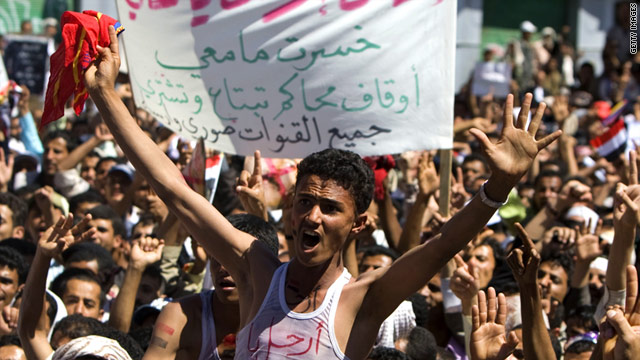By Eric C. Sigmund
Impunity Watch Reporter, Middle East
MANAMA, Bahrain – Tens of thousands of Bahrainis continue to hold Pearl Roundabout in the heart of country’s capital, weeks after small bands of protesters took to the streets demanding political reform. Anti-government rallies continue to draw large numbers despite last week’s clashes with security forces that left at least seven dead. Friday’s protests brought out over 100,000 people into the streets of Manama. In a move to appease opposition forces, the King has reshuffled his cabinet and promised to reduce housing loans by 25 percent. The King pledged “to engage in this new process” and “move away from polarization.” The military has also been ordered to stand down. Despite these moves, tensions between Sunni and Shiite groups continue to rise.

Moderate Shiites have been at the forefront of the protests in Bahrain. The protests represent a challenge to Sunni minority currently in power. While pressure from citizens has caused the King to shake up the country’s leadership, opposition leaders contend that the changes were “superficial” and unlikely to bridge the gap between the two groups. The government also released 308 political prisoners. Direct talks between Sunni and Shiite parties however, continue to be untenable. “This change is very superficial and doesn’t send good messages—it’s a case of old habits die hard as they’re patronizing the opposition to accept minimal change. The people are too sophisticated for this now: it won’t work,” states Ebrahim Sharif, director of the National Democratic Action Society. Until opposition forces realize meaningful reforms, protests will likely continue within Bahrain.
Protests in Yemen rage on in spite of violent crackdowns by security forces as citizens seek the resignation of President Ali Abdullah Saleh. The protests have been led largely by students and 27 people have lost their lives since the protests began in the country. The President contends that he has received support from sheikhs and local officials and has resisted any move to divest him of power. The government has been silent about the death of protesters but the President has announced that he will not run for re-election at the end of his term.
Yemen continues to suffer high rates of unemployment, government corruption and lacks many substantive political freedoms. And while protesters continue to battle for freedom and political reform, the country faces another battle for survival against Islamic militants and al-Qaeda. With the government and the population split, the current situation presents a prime opportunity for Islamic terrorists to recruit additional fighters and solidify their power in tribal and less developed regions of the country. Commenting on this risk, one protestor criticized the government’s propagation of the terrorist threat to acquire foreign aid to combat terrorism stating that “we are here to show the world that [President Saleh] is the terrorist.”
For more information please see:
CNN World – Bahrain King Reshuffles Cabinet As Opposition Leader Returns – Feb. 26, 2011
CNN World- Tribal Groups Joining Protests against Yemeni President – Feb. 26, 2011
International Business Times – Huge Anti-Government Protests Sweep across Yemen – Feb. 26, 2011
The Wall Street Journal – Protests Build Again in Bahrain – Feb. 26, 2011